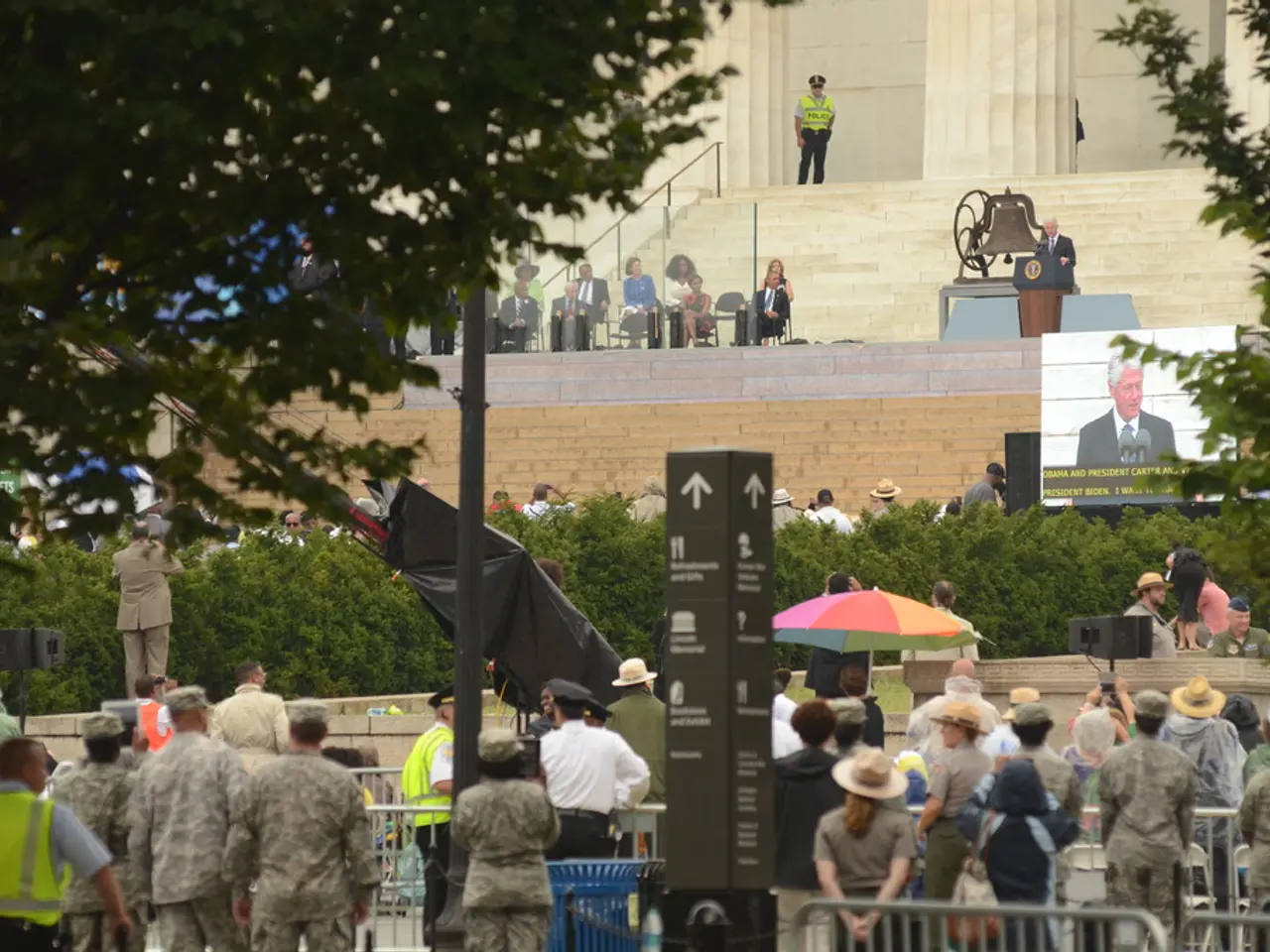U.S.-South Korea '2+2' trade negotiations call off due to Treasury Secretary Bessent's pressing commitments
The much-anticipated '2+2' trade dialogue between South Korea and the United States, initially scheduled for late July 2025, is set to tackle a range of high-stakes issues as both nations navigate a shifting global trade landscape.
The meeting, held at the government complex in Jongno District, central Seoul on July 22, was a high-level discussion focusing on trade-related issues. Minister Koo Yun-cheol, along with other related ministers, attended the gathering.
One of the main topics of discussion was the tariff rates on Korean exports to the U.S. Currently, South Korea faces a 10% base tariff, with significantly higher rates on key products, such as automobiles and auto parts (25%), steel and aluminum (50%). If no deal is reached by August 1, 2025, these tariffs are set to rise to 25% across the board, which could impose a substantial economic burden on Korea’s export-driven economy.
Another point of contention is the demand for U.S. market access, particularly for sensitive sectors such as agriculture and beef. South Korean negotiators are aiming to balance consumer interests and national priorities, and are calling for adequate compensation for any concessions made.
The U.S. has reportedly proposed large-scale investment funds as part of the trade package, with an initial sum of $400 billion, later increased to $550 billion. This scale, equivalent to nearly 2.3 times the size of South Korea’s economy, is seen as a significant pressure point in negotiations.
South Korea is advocating for a comprehensive deal that includes not only tariff reductions or exemptions but also broader economic cooperation. The goal is to leverage Korea’s strengths in sectors like semiconductors, shipbuilding, and liquefied natural gas, and to highlight its status as the largest foreign investor in the U.S.
The sudden postponement of the talks has heightened strategic uncertainty for Seoul, with the move being interpreted as underscoring the reactive and sometimes unpredictable nature of the U.S.-Korea dialogue. The pressure following the U.S.-Japan deal, which saw Japan secure lower tariffs in exchange for a massive investment in the U.S. and increased market access for American autos and rice, has also increased the pressure on South Korea to secure "at least equal, if not better" terms.
Minister Koo Yun-cheol has stated that he aims to 'return with results' following the '2+2' trade talks, signaling the importance both countries place on reaching a resolution that balances national interests and economic realities. The deadline for a deal looms as both sides seek to navigate the complexities of global trade in the 21st century.
- The topics of discussion in the '2+2' trade dialogue between South Korea and the United States involve a blend of finance, government, diplomacy, and economy, as both nations strive to negotiate appropriate tariff rates and secure market access for key industries like automobiles, agriculture, and sensitive sectors.
- South Korea's export-driven economy faces a potential financial burden if the tariffs on its exports to the U.S. are increased from the current rates, and the nation is aiming for a comprehensive deal in finance and international industry to offset this impact.
- The United States has proposed massive investment funds as part of the trade package, aiming to exert pressure during negotiations with South Korea, which sees broader economic cooperation as a means to leverage its strengths in sectors such as semiconductors, shipbuilding, and liquefied natural gas.
- The government complex in Jongno District, central Seoul, served as the venue for the high-level discussion between South Korea and the United States on trade-related issues, with Minister Koo Yun-cheol and other related ministers in attendance, demonstrating the significance placed on the diplomacy and business aspects of the dialogue.




